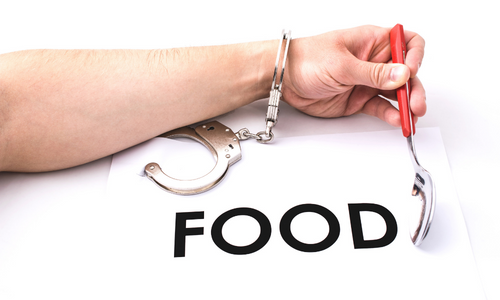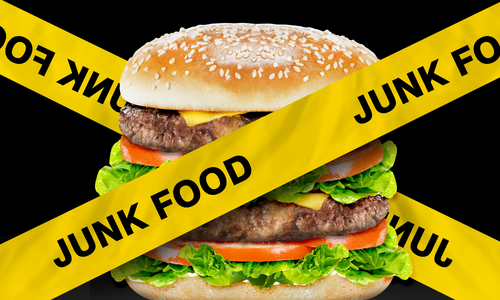Is your home a trigger to eat processed food? Reducing availability can help | Part 2 of 2

Issue No. 11 | Brought to you by the Addiction Reset Community – ARC
Unlocking the secrets of processed food addiction and guiding you to find freedom from food and weight obsession.

In the previous issue, we looked at how innate human survival behavior of eating calorie-dense foods, for their own profit. Through repeated exposure to cues and the formulation of processed foods mixed with addictive ingredients, the food industry has made some brains hyper-reactive to calorie-dense foods.

Increased availability of these foods cues eating, making abstinence from them, extremely challenging.
Here are some of the Do’s and Don’ts that can help households to reduce the availability of processed foods and protect families from a long list of diet-related diseases.

The Do's:
Do learn about the difference between helpful unprocessed foods and toxic processed foods:
- Do bring unprocessed foods into the house.
- Do suggest restaurants where your household members can get unprocessed foods.
- Do help your household member prepare unprocessed foods.
- Do enjoy beautiful unprocessed meals at home with your household.
- Do praise your household members for doing the work to keep their brains and bodies protected and functioning optimally.
- If it’s absolutely essential for you to keep processed foods in the house, get a lockable container for them and make sure that it’s locked and that the key is not in the house.
- Do educate household members about the toxic properties of processed foods and why they’re not allowed in the house.
- Do express gratitude that you have been spared the many ill effects of processed foods.

The Dont's:
- Don’t bring processed foods into the house.
- Don’t eat processed foods in front of household members.
- Don’t ask household members to buy processed foods for you.
- Don’t drive past processed food outlets.
- Don’t talk about processed foods with household members.
- Don’t tease or ridicule household members for avoiding toxic processed foods.
- Don’t hide foods where household members can find them.
- Don’t encourage household members to go to entertainment environments where processed foods are heavily promoted.
By following these suggestions, you may get to watch your household emerge from a surprising range of health problems. You will be pleased that you got this information and acted upon it.

Within the Addiction Reset Community (ARC) our members and their journeys are important to us. We find their stories inspiring and hopeful for everybody in health recovery.
“I’ve not long joined the ARC and have had such a powerful few weeks already! I joined my 2nd check-in and study group today and had an incredible moment during it while reading through Chapter 18 of the textbook. I’d never seen the link with something I’d regularly experienced as a child by how a loved one’s own addictions were impacting me and my siblings so negatively. Suddenly dots were connecting all over. Did I cry while sharing? Yes! Did I feel safe to do so? Absolutely! It was so incredible to be able to share so openly and have the group hold space for me. I came away feeling like something inside shifted and I’m so grateful! These sessions together are so, so important and I cannot wait till the next one! Thank you dear friends, especially those who were there today.”

Many people reach out to Joan asking for advice and assistance on how they can begin their recovery journey.
Dear Joan
I've been eating a lot of fast food and it's really hard for me to stop. When I stop I suffer desperate mood swings and crave. I've tried to give it up but my friends, who are thin, always want to eat fast food and when we hang out, I overeat, because I crave everything on the menu, eat it and regret it afterwards. I get irritable and crave it again tomorrow and start the cycle all over again.
Joan responds:
Research shows that processed foods are associated with mood swings. Processed foods are absorbed very quickly into the bloodstream causing glucose levels to rise quickly. This can make the addicted person feel high and even euphoric. However, the pancreas responds to bring down glucose levels by releasing insulin. Insulin can bring down sugar levels very quickly which feels like a crash. People can become very depressed and angry in the sudden drop. With the right support based on the new science of food addiction management, you can regain control of your food and eliminate the mood swings.
DISCLAIMER:
Dr Joan Ifland (PhD) is a global expert on the subject of processed food addiction and is not a medical doctor. Information and response shared in this Newsletter are not intended for, and should not be construed as medical advice.

Do you have a question? Reach out to us with your questions about food addiction and recovery at gethelp@foodaddictionreset.com
Are you showing signs of Processed Food Addiction? Take this self-quiz to find out now!
Recent copies of Dr Joan Ifland's Blog:
Issue 01 | Issue 02 | Issue 03 | Issue 04 | Issue 05 | Issue 06 | Issue 07 | Issue 08 | Issue 09 | Issue 10

